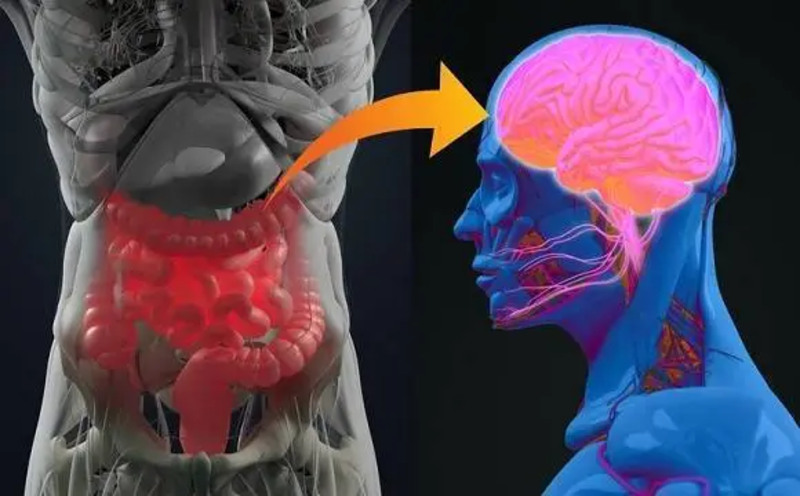Constipation is a common problem with digestion that touches people in any age group. It usually brings discomfort and annoyance, often showing as irregular bowel movements or trouble passing stool, which can be due to lack of enough fiber, not drinking enough water, or certain ways of living. By knowing how these parts affect constipation, you can put good habits into action for long-term use so it could help bring normality and ease your condition. This article will give important data for easing constipation and accomplishing a more healthy digestion system.
Increasing Dietary Fiber for Better Digestion

The healthy functioning of the digestive system is very much dependent on dietary fiber, however, a lot of individuals eat less than what is daily advised. Fiber contributes to enlarging stool mass and encourages its movement in the intestines which helps avoid constipation. Foods that are rich in fiber like fruits, vegetables, whole grains, and legumes can naturally improve digestion greatly. If you consistently eat enough fiber, it can assist your body to have a more normal bowel routine. This is because fiber soaks up water and increases the size of your stools, which helps them pass more easily. Start by slowly increasing how much fiber you consume for your digestive system to adapt without causing possible bloating or gas problems.
- Soluble Fiber Benefit: Soluble fiber in oats and fruits absorbs water, softening stools and easing passage.
- Insoluble Fiber Function: Insoluble fiber in whole grains adds bulk, helping food move smoothly through the intestines.
Hydration Tips for Improved Bowel Movements
Maintaining hydration is key to solving constipation issues, as the role of water is to soften feces and help it move easily through the intestines. If your body lacks enough fluid, it gets more water from food in your digestion system which may cause stool hardness. It's advised that you consume water during the whole day bit by bit rather than all at once because steady intake aids better with the digestion process. Herbal teas, fruits full of water, and some specific broths likewise can add to your fluid consumption, helping you keep regularity more easily.
- Avoid Caffeinated Drinks: Caffeine can be dehydrating, so limit coffee or tea, as they may worsen constipation.
- Cold vs. Warm Water: Warm water can stimulate digestion more effectively than cold, aiding bowel movement.
Establishing a Routine for Regular Bowel Movements
To lessen constipation, forming a usual routine for the bathroom can be beneficial. By sparing time every day, preferably after eating when the digestive system receives natural stimulation, one can promote more consistent bowel movements. Often body reacts favorably to this regular timetable as it fosters a trained reaction. Don't postpone the need to go, because holding it can result in harder stools which makes passing later more difficult. Through regular practice, this habit could turn into a natural and beneficial method for managing digestive health and lessening constipation.
- Timing After Meals: A bowel routine soon after eating, especially breakfast, aligns with the digestive rhythm.
- Uninterrupted Time: Ensure privacy and relaxation during bathroom time, as tension can disrupt the process.
The Role of Physical Activity in Alleviating Constipation
Physical activity helps to improve digestion and stop constipation. It activates muscles in the intestines, making the process of digestion natural and helping regular bowel activities. Even mild exercise like walking, cycling, or yoga can make a big difference in digestion by increasing blood circulation and aiding food passage through the digestive system more efficiently. Try to add some kind of exercise every day. It can lower the chance of constipation and improve your general health.
- Post-Meal Walks: A gentle walk after meals can support digestion and reduce bloating or constipation.
- Core Exercises: Strengthening core muscles helps in supporting the digestive systems function.
Managing Stress to Support Digestive Health

Stress can mess up digestion activities because it starts the body's "fight-or-flight" reaction which might decrease bowel movements. When a person is continuously under stress, they could suffer from digestive problems like constipation. Methods like deep breathing exercises, meditation, and progressive muscle relaxation might be useful in reducing stress for making better conditions for digestion. Sufficient rest, letting the body recover and mend, is a further element in controlling stress and enhancing gut health. By adopting strategies to manage stress, a person can encourage more regular digestive habits.
- Mindful Eating: Avoid distractions while eating, as this mindful approach can improve digestion and reduce stress.
- Breathing Techniques: Deep breathing before meals helps relax the body and enhances digestive efficiency.
Identifying Foods that Can Trigger Constipation
Certain foods can have a big impact on causing constipation, particularly when eaten in large amounts and not balanced with fiber and liquids. Processed items, food containing dairy products, as well as those high in additional sugars often cause digestive problems. You may decrease these issues by eating less of such foods or pairing them with choices that are rich in fiber to lessen their effect on constipation. Also, noticing how your body reacts to various foods can help find out certain triggers. Changing your diet based on these understandings, may enhance better digestion and reduce constipation occurrences.
- Monitor Dairy Intake: Some people are sensitive to lactose, which can contribute to constipation in larger amounts.
- Reduce Processed Foods: Foods high in preservatives and low in fiber may lead to digestive issues, including constipation.
Conclusion
To avoid constipation, you need to change your diet, drink more water, do exercises regularly, and be mindful of what you eat. Also managing stress is important. Eating more fiber-rich foodstuffs, drinking enough fluids daily and regular workout can help maintain healthy digestive system function along with watching out for things that cause stress or affect our dietary habits adversely will give relief from such conditions. Making these changes little by little but consistently over time could result in lasting advantages like a better bowel movement routine without any discomfort which is the key to preventing constipation issues.





